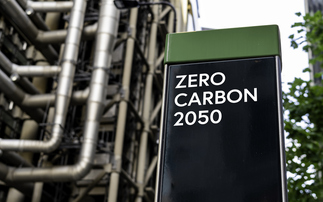How can businesses develop a credible strategy for tackling a challenge as complex as reducing global inequalities?
Businesses can exacerbate inequality through paying low wages, avoiding taxes, and using their influence to shape the market and regulations in ways that disadvantage those with fewer resources. Or businesses can contribute to the removal of systemic inequalities by creating economic opportunities, proactively embracing diversity and tackling discrimination, supporting the establishment and expansion of social protection measures, and complementing government efforts through their expertise, resources, and tax revenues.
As such, the business community has a critical role to play in the pursuit of Sustainable Development Goal (SDG) 10 and its target to "reduce inequality within and among countries". Businesses can implement policies and practices to support equality of opportunity, treatment, and outcome across their own operations and through their supply chain. At the same time they can design and implement products, services, and business models that target the needs of vulnerable and marginalised populations, and through their support of the wider sustainable development agenda work to reduce inequalities between countries.
However, inequality is an inherently complex and controversial topic, and not one many businesses are all that comfortable wrestling with. How then can corporates develop a strategy that credibly supports the pursuit of SDG10, strengthening their commercial opportunities and wider performance in the process?
BusinessGreen asked experts for their top tips on how business leaders can start to wrestle with SDG10:
Understand inequality
Many businesses have misunderstood what inequality means, believes Ruth Mhlanga, private sector policy advisor at Oxfam. "Some company SDG strategies I've seen in the past couple of years think about inequality in terms of social aspects, such as disability, race, ethnicity and diversity," she says. "Businesses point to those programmes, and say that that is what they're doing to increase social inclusion."
These issues are important, and are part of what inequality is, she continues, but few businesses are looking at what is at the heart of inequality - the way wealth is created and distributed. "We really wanted to see discussions about taxation, wages and shareholder wealth [taking place in the boardroom]," she says "It's not enough for companies just to say that they will hire more women or ethnic minorities, it's understanding that the money needs to move as well - money going to communities, not just shareholders."
Consider the problem before the solution
"I see a lot of businesses and NGOs that have a solution looking for a problem, a hammer looking for a nail," says Olga LeBelle, vice president, humanitarian and development at Mastercard. "They have a platform that they've used before and they want to repurpose it. That never works because these issues are unique and very challenging."
The firm advocates spending a lot of time on the ground with communities to really understand the issues they face from end to end, who is involved in a particular process, whether they contribute in a good or bad way, and what each participant needs, before starting on developing an SDG10 strategy.
Follow the value
"The number one business action is to assess the distribution of economic value across stakeholder groups and implement policies and practices to make it more equal," advises Lila Karbassi, chief of programmes at the UN Global Compact (UNGC).
This may be achieved through changing ownership structures to include communities and small suppliers, or distributing profits above a certain threshold to community and environmental benefit funds, according to the organisation's Blueprint for Business Leadership on the SDGs.
Companies can also identify and include businesses in their value chain that distribute greater value to workers and communities, including suppliers with profit-sharing agreements with workers, hybrid ownership models that give workers or suppliers a share of the business, or governance models that give greater representation to workers and communities.
The UNGC stresses that companies should recognise that shareholders are only one group of stakeholders, and that the interests of others may need to be prioritised over short-term maximisation of shareholder value - a concept recently embraced by CEOs at some of the world's largest companies.
Aim for scale
For too long, businesses have looked to deploy pilots, grants, and one-off projects to help tackle inequality, rather than pursuing genuinely scalable opportunities, LeBelle believes. "There is a role for corporate philanthropy, but there is an opportunity to think bigger," she says. "Business should look at their core assets, what technology they have, what kind of innovation they can try, what expertise they can bring to the table and how they can channel all those corporate assets for good, rather than just creating a department that writes cheques."
Mhlanga agrees that dealing with inequality should not be the preserve of corporate philanthropic arms, or even sustainability divisions. "It can't be done by the sustainability team on its own, it needs to be integrated into core business," she says.
Reform business models
Businesses could reduce inequalities by paying a living wage throughout their supply chains, and looking at whether their tax policy was responsible, Mhlanga advises.
"This is going to be hard for companies, most have been created to reduce labour and tax costs - there are probably entire departments who work to keep those costs as low as possible," she acknowledges. "It is not in the nature of companies to ask how they can pay more tax."
As such a lot of corporate structures are not geared to make the changes that could really help tackle inequality, and as such would need a change in their governance and ownership to achieve them, she says.
"We're not saying you can't make profit, we're saying attach a human rights lens, not just a commercial one," she says. "Otherwise the projects that come out of it won't really align with what the world is trying to achieve with the SDGs."







